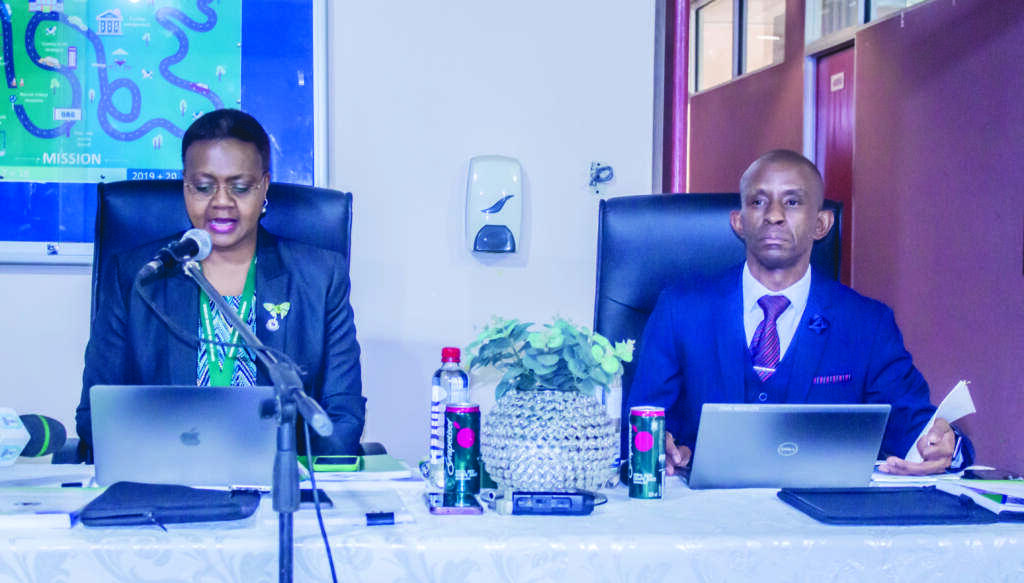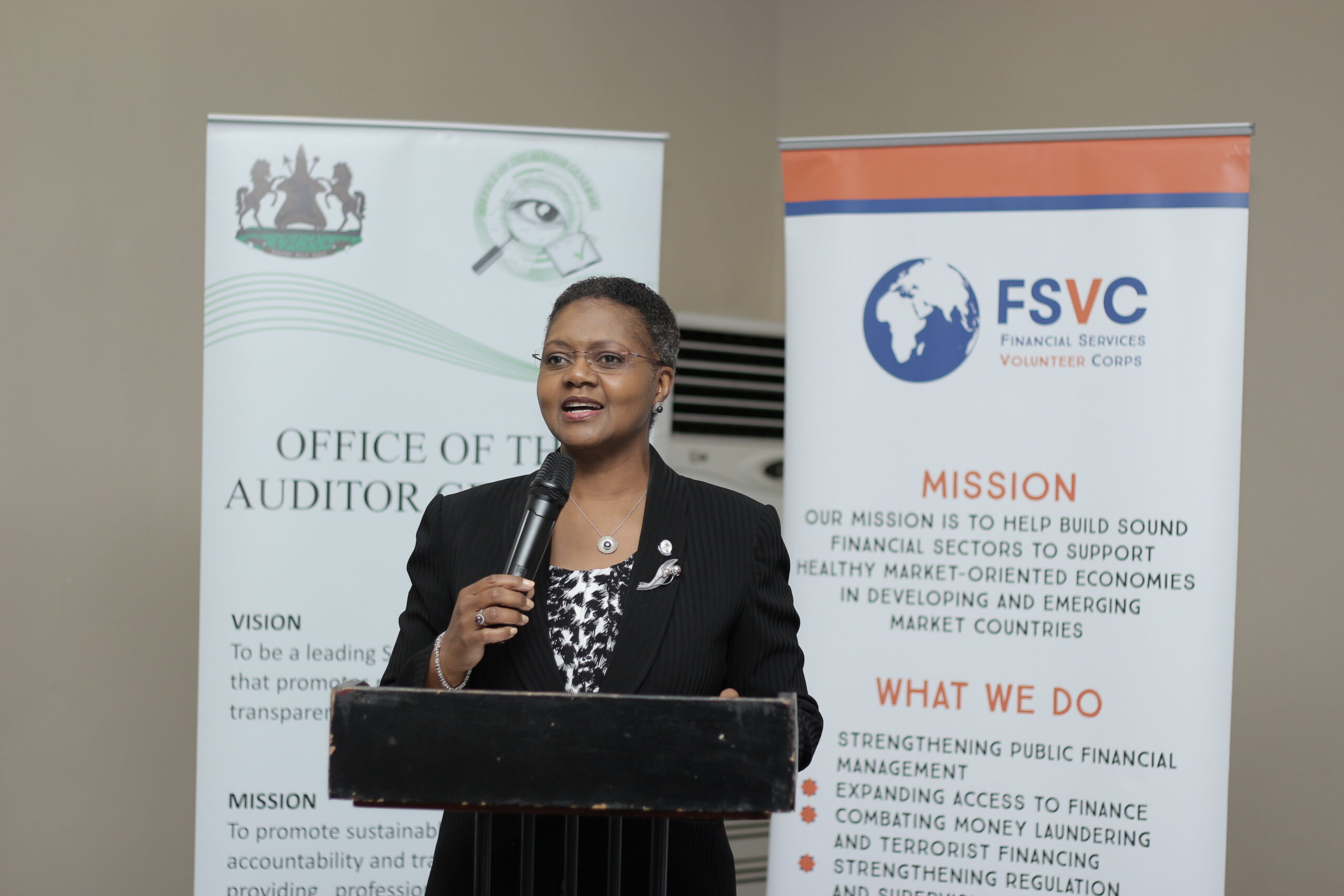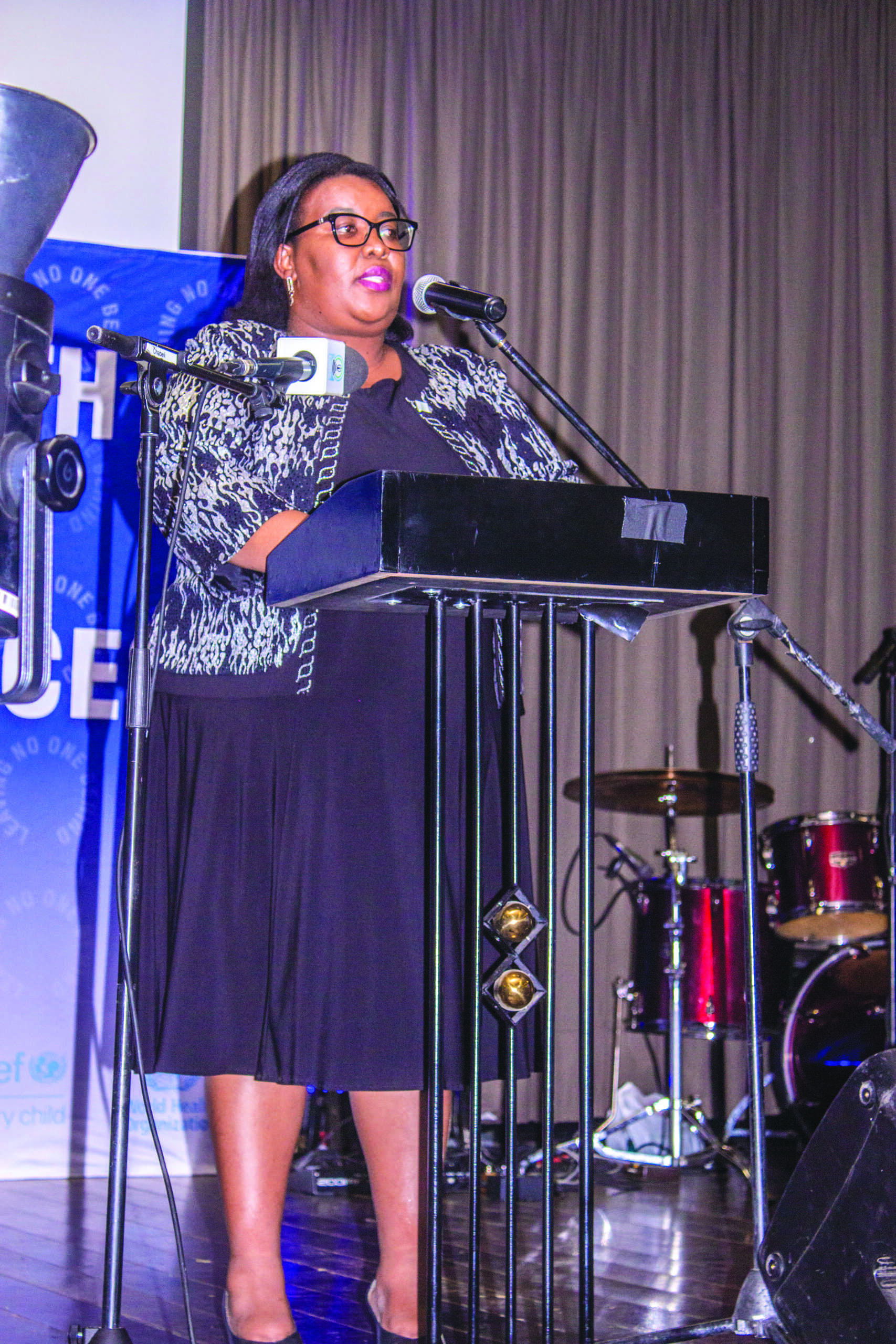- Auditor-General exposes rampant fraud in government
Kananelo Boloetse
Government funds to the tune of M48 million have been siphoned through a web of deceit and mismanagement, as revealed in a scathing report by Auditor-General Mathabo Makenete for the year ending March 31, 2022.
In her damning assessment, Makenete exposed a litany of financial irregularities, including payments made to non-existent companies, duplicated payments, and even triple payments, casting a shadow of corruption and incompetence over the administration.
“The verification of reconciliation of the cash book by the Accountant General spanned the period from April 1, 2019, to August 2021,” the report read.
“Contrary to the amount of M1.2 million in payment vouchers posted to the cash books, the payment vouchers were different from the instruction letters submitted to the CBL (Central Bank of Lesotho) for payment in respect of payee details and amounts, resulting in the CBL processing unauthorised payments of M48.7 million,” it added.
The report highlighted that these payments were directed to companies whose existence could not be verified through records from the Ministry of Trade.
Makenete also raised concerns about inconsistent information, citing instances where fraudulent payment instructions were exploited to siphon off funds.
“I would like to emphasise the issue regarding an instruction letter number 052PVR21000199, dated 20/01/2021. This letter authorised a payment of M942,670, which was later discovered to be fraudulent,” she said.
“The same instruction number was mentioned in the ‘Particulars’ column, while a different instruction number (052PVR21000019), was recorded in the transfer reference column on CBL bank statement,” she added.
Makenete emphasised that the inconsistency in information highlighted a critical issue requiring urgent attention. She underscored that payments made without supporting evidence significantly heightened the risk of financial loss.
Without verifiable proof of payment, tracking and recovering funds in cases of discrepancies or non-compliance by recipients became challenging.
This situation, she warned, created fertile ground for potential misconduct or mismanagement to thrive, urging for stricter adherence to proper documentation protocols to mitigate such risks.
“Individuals or organisations could also falsely claim payments for goods or services that were never delivered. I recommended that it is important to maintain proper documentation and evidence for all financial transactions,” she said.
“These include invoices, receipts, contracts, emails, or any other relevant records, that can verify the payment and the terms of the transaction,” she added.
The Auditor General also revealed an alarming incident involving fraudulent payment instructions directed to the Central Bank. She detailed: “Instruction letter number 013PV21001213 was exploited to make duplicate payments totaling M2.6 million to the same payee, MRP Enterprises (Pty) Ltd, on 28th January 2021, and 11th February 2021.”
She said this was a blatant violation of Treasury Regulations, 2014, Section 24 (g), which mandates that each payment voucher must bear a unique registration number.
Moreover, Makenete expressed concerns regarding systemic weaknesses within the payment framework linking the Treasury and the Central Bank. These deficiencies, she pointed out, contributed to the failure to identify and prevent duplicate payments.
Furthermore, the audit process uncovered that a portion of payments initially flagged as double payments by the Treasury Department, totaling M59,404, were, in fact, made thrice.
This finding was revealed through a review of the bank statements, which consequently led to a total payment of M178,213, in this case. It was observed that a single payment voucher number was utilised to authorise the payment of the identical amount to the same payee on three separate dates.
“The review highlighted a further incident involving a payment of M9.9 million dated 30th July 2021, that was transferred using instruction number 051PVR22000237, as revealed by the bank statement,” she said.
She explained that the CBL took corrective action and reversed the payment on September 2, 2021, but the payment was once again made on the same date, September 2, 2021, with the identical instruction number.
“Nonetheless, the Bank reversed the payment yet again on 7th September 2021. This duplicated payment and reversals and the circumstances surrounding the reversals were suspicious,” she said.
Makenete also brought to light an alarming revelation regarding note 15 of the financial statements, indicating that as of 31st March 2022, there were a total of 383 accounts, comprising 366 bank accounts and 17 mobile network operator accounts.
She elaborated that the Central Bank of Lesotho (CBL) held 93 accounts, with a combined balance amounting to M3.517 billion, while commercial banks managed 273 accounts, totaling M1.080 billion.
Additionally, local mobile network operators maintained 17 accounts, with a collective balance of M9.705 million, resulting in a total cash balance of M4.607 billion for the year under review.
“However, the Consolidated Statement of Cash Receipts and Payments showed that the Government had a cash balance of M9.900 billion as at 31st March 2022,” she said.
“There is a discrepancy of M5.308 billion as of 31st March 2022, which continues to be a matter of concern to the integrity of the Financial Statements,” she added.

Your Trusted Source for News and Insights in Lesotho!
At Newsday Media, we are passionate about delivering accurate, timely, and engaging news and multimedia content to our diverse audience. Founded with the vision of revolutionizing the media landscape in Lesotho, we have grown into a leading hybrid media company that blends traditional journalism with innovative digital platforms.










